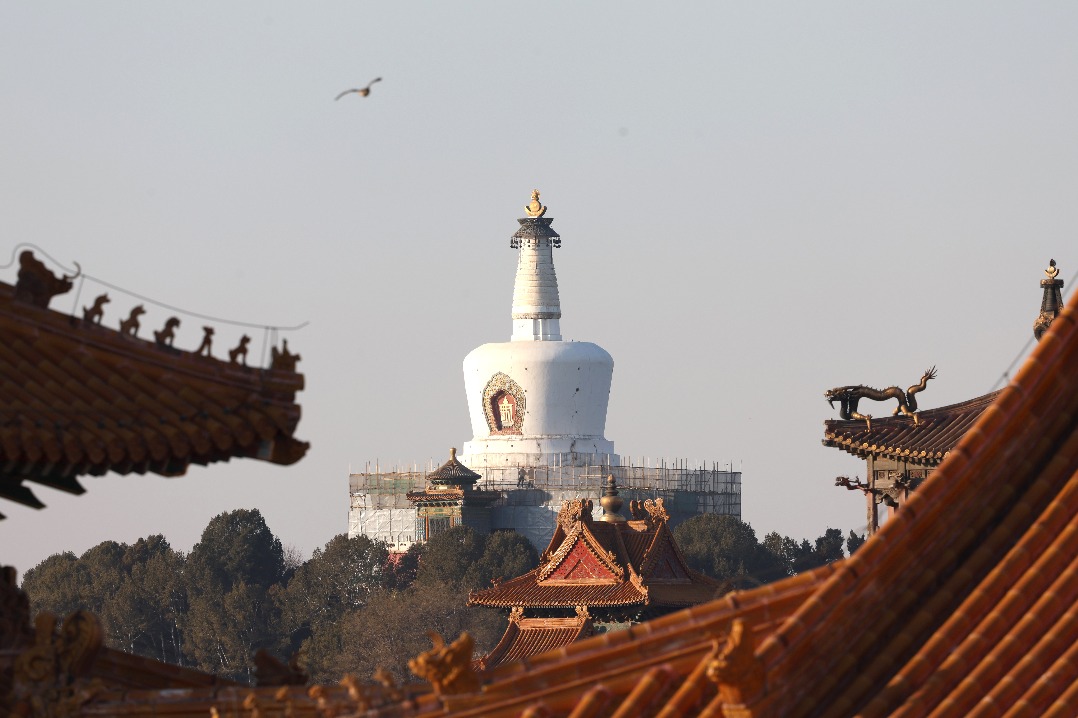A viral sensation


Into Africa
"I thought I would never write about Ebola again," Preston told China Daily."But when Ebola broke out in Africa in 2014, I quickly realized this was a very new kind of Ebola outbreak. Unlike the earlier ones, this was a widespread, dangerous epidemic, which had the potential to turn into a pandemic.
"As a reporter, I felt the only way I could understand this event was to go to Africa, see for myself and talk to the people who had been in the middle of this crisis."
It was later shown that Ebola's outbreak between 2014 and 2016 in West Africa was the largest since the contagion was first discovered in 1976.
Preston arrived in West Africa in January 2015, when the virus was on the wane, and the danger had decreased. He talked to survivors who, despite "complete trauma and exhaustion", were still able to talk about their experiences.
In the following years, he interviewed more than 200 people related to the outbreaks, and visited laboratories in the United States and Europe, trying to learn about the key events during the outbreaks, down to details of the exact time everything happened.
In 2019, Crisis in the Red Zone was published in the US. The Chinese version was published in 2020, and has achieved 9.1 points out of 10 on China's popular review site Douban.
"Crisis in the Red Zone is an amazing, spellbinding tale of horror and compassion, wasted opportunities and human kindness," writes Sean, a reader who bought the book online. "I am amazed and appalled at the blunders, arrogance, love, compassion, and betrayal shown by the very real people battling this deadly outbreak."
Zhang Jiren, the editor of the book's Chinese version from Shanghai Translation Publishing House, says: "When you open the first page, you will keep reading it until the end. It's about science, about the virus, but at the end of the day it tells a good story."
It was Zhang who introduced Preston's previous book, The Hot Zone, to China in 2016. It has sold about 200,000 copies, half of which were bought in 2020 following the outbreak of COVID-19.
He decided to publish the second book, Crisis in the Red Zone, in China as well after reading it and found it "as high in quality as the previous book". So far, about 40,000 copies have been sold in China. E-book sales have also been good.
Douban user Shudaizi says: "If The Hot Zone shows Ebola through patients' suffering, then Crisis in the Red Zone further displays the virus through medical workers' selfless and helpless sacrifice. It is full of human tenderness."
Zhang says that the second book has a wider field of vision compared with the first one. "It elaborates on Ebola's past, present and future. By comparing the Ebola outbreaks in 1976 and 2014, we can view the things from historical and current perspectives," he says."The author also makes a prediction about the outbreak of a new virus, which, you could argue, came to pass with the outbreak of COVID-19."
Poor focus
For Preston, the outbreak of COVID-19, just like Ebola, seems to be part of a pattern rather than something unusual or extreme. As he described, an emerging virus comes out of the ecosystem, magnifies itself in people, sweeps away lives, meets opposition from human species, and finally dies out.
Born in Cambridge, Massachusetts, Preston earned a doctorate in English from Princeton University in 1983. He is a writer for The New Yorker and bestselling author who has published 10 books, both nonfiction and fiction.
He finds some similarities in the outbreaks of the two viruses."When Ebola first arrived, many ordinary people in Africa did not believe it. They said Ebola was a political hoax. They said: 'In any case, Ebola will never get to me. Ebola will never come to my community or my family.' And all of those beliefs were wrong," says Preston.
"Recently in the US, millions of people say exactly the same thing as the Africans said about Ebola. They said:'It is a trick, a political hoax.' And 'it's not very dangerous'; 'I don't have to worry', or 'I won't catch it'," he adds.
"I think what we are seeing here is human nature. It seems nobody really wants to look at a very dangerous thing, and nobody wants to admit how dangerous these viruses are."
Back in 1991, when a scientist recommended to Preston that he write something about Ebola, he went to talk with virus experts from the US army. He was struck when they not only talked about the horror of Ebola, but also the beauty of it as a fascinating life form. "They said it is a little bit like a lion, very beautiful, but can devour us if we are not careful enough," recalls Preston.
He gradually realized the power of nature, or the virus, which in his opinion is "nature's revenge". "It makes no distinction between people, rich or poor, in what nation they live or what their political views are. None of these things matter to a virus."
As a result, he believes it is necessary to pay attention to the conditions of poor people. "We are only as strong as the weakest individuals of our society. When people are poor, underprivileged, live in crowded conditions, don't have access to doctors and medical care, they become nothing but a place where a virus can establish itself, and affect everybody," he says.
During Preston's visit to West Africa in 2015, he went to a market in Kenema city, an epicenter of the 2014 Ebola outbreak in Sierra Leone, on the first day of its reopening after many months of closure. He met a group of teenage girls who seemed to be quite happy, and one of them saw his camera and asked if he would take a photo of her.
"This is a proud little girl. And she is looking at me and my camera with a smile on her face. She is so confident and happy, and it seems she knows where she is going in life. Whenever I look at that picture, I get the feeling that the girl is the future of Africa, and the future of all of us," says Preston.





































